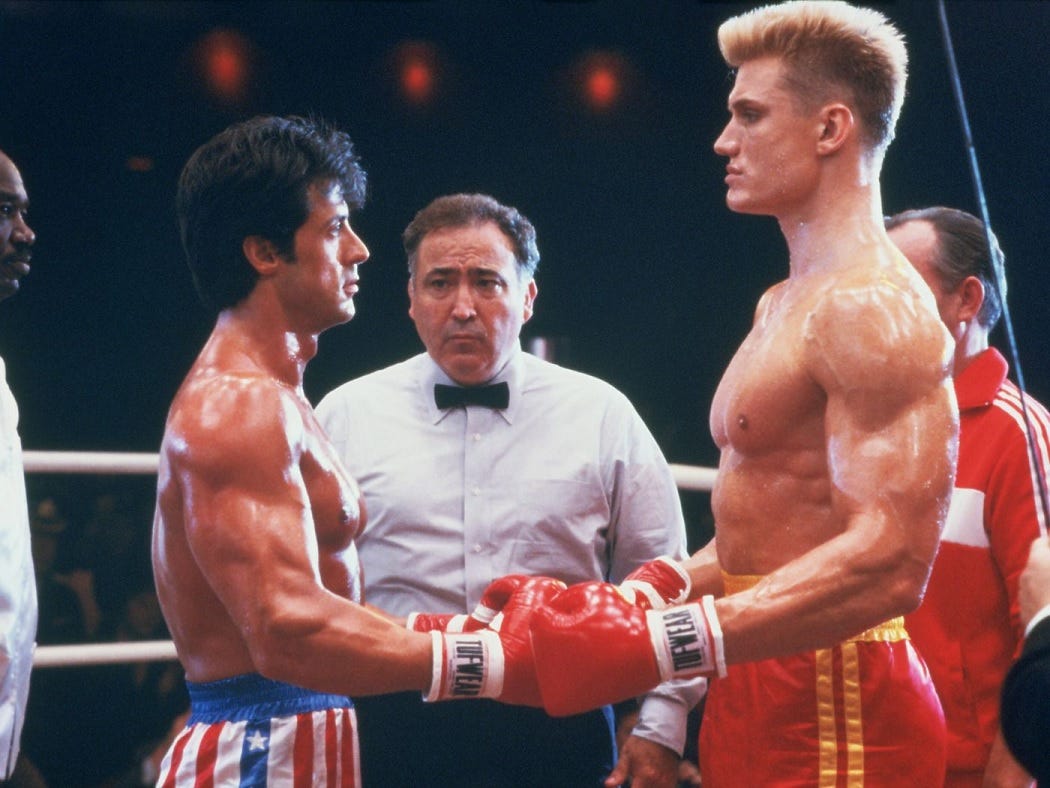The Israel-Gaza war is still the topic that’s on everybody’s mind, so I guess I should write one more post about it. Increasingly, when I read about this war, it feels less like a typical Israel-Palestine blowup and more like an extension of Cold War 2.
But what does that even mean? I think of a “cold war” as basically a model — a framework for understanding world events. Think about the original Cold War. We say that things like the Soviet invasion of Afghanistan, or the U.S.-supported coup against Salvador Allende, or Soviet spying, or CoCOM, or the movie Rocky IV were “part of the Cold War”, but there’s no hard-and-fast definition of what that means. Nobody declared the Cold War, or made policies that used that name. Instead, the competition between the U.S. and the USSR was just a mental framework that writers and politicians and regular people used to make sense of what they saw happening in the world around them — a way to view many small events as part of one overarching big event.
In the same way, I think of “Cold War 2” as a model for how to think about a lot of the geopolitical happenings in the world today — and some of the economic and cultural ones as well. The Israel-Gaza war, and the bizarre and toxic discourse on both the far left and the far right in America, the sudden return of industrial policy and the reshaping of supply chains, and so on — can be understood as being at least partly outgrowths of the great-power contest between the U.S. and its democratic allies and an authoritarian bloc led by China and Russia. (If you prefer not to think of these blocs in ideological terms, I think Sarah C.M. Paine’s framework of “maritime” vs. “continental” powers works just as well.)
This is one reason I’ve been writing a fair amount about geopolitics over the last three years, and especially since Russia invaded Ukraine. So many of the economic changes we’re seeing now, and which are being planned for the next two decades, are either being driven by Cold War 2 concerns or will have an impact on the outcome of Cold War 2. In a world where the economy becomes a key tool that great powers use to prosecute their conflicts, it’s completely impossible to just “stick to the economics”.
Now, if the power of models is to simplify, the danger of models is that they can easily be over-applied (as some macroeconomists have discovered). It’s tempting to become so obsessed with Cold War 2 that you see a spy behind every tree, or a foreign propaganda message behind every bad take on Twitter. So I want to draw connections between seemingly disparate events while being careful not to accidentally prod people into conspiracy thinking.
Anyway, that having been said, let’s talk a bit about why the big topic that’s occupying the nation’s mind these days is really about Cold War 2 — as is a lot of the other dire stuff we’re seeing in the news.
The Israel-Gaza war as a Cold War 2 proxy conflict
Keep reading with a 7-day free trial
Subscribe to Noahpinion to keep reading this post and get 7 days of free access to the full post archives.




